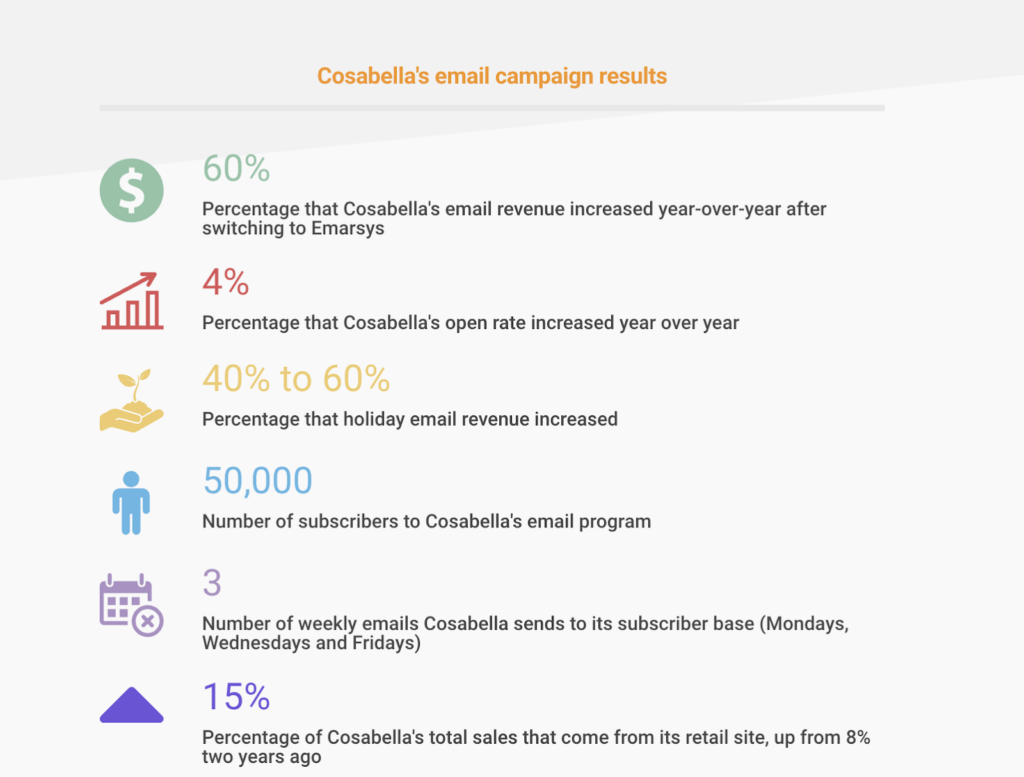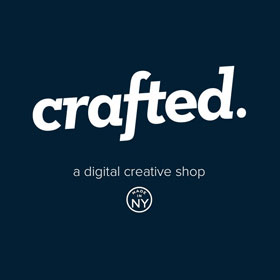
Generative AI Use Cases for Marketing & Business
No secret that generative artificial intelligence is taking the stage in business and marketing, as a marketing automation tool. With the ever-changing landscape of business and marketing strategies, this impressive technology is becoming increasingly prominent. The first quarter of 2023 saw an astounding $11.2 billion surge of investments into generative AI, as reported by Pitchbook.
Far from being a passing trend, this innovation is, no doubt, fundamentally reshaping every aspect of marketing. Remarkably, HubSpot’s research indicates that by using the power of generative AI, marketers can achieve a time-saving feat, slashing an average of 3 hours and 10 minutes from a content creation process.
What Do We Know about Generative AI in Marketing and Business?
In the business and marketing world, where “time is money,” the integration of artificial intelligence (AI) has sparked a dynamic transformation undoubtedly. AI’s ability to swiftly analyze large amounts of data, make reasonable predictions, and automate tasks has redefined how companies engage with customers, optimize operations, and drive growth.
AI’s influence on marketing is akin to having a “silver bullet” at one’s disposal. It enables the creation of custom content, fine-tuning any kind of ads & campaigns, and precise customer segmentation, all contributing to more effective marketing strategies.
Beyond marketing, AI influences pricing strategies, optimizes customer experience, and sharpens fraud detection efforts in other areas of the business industry. So much so that, we know that AI not only keeps businesses competitive but also positions them to strike while the iron is hot by predicting & leading industry changes.
And good news: As AI evolves, this symbiotic relationship between that great tech and business & marketing promises to unlock new, groundbreaking possibilities, catalyzing success.
Bottom line: Generative AI stands ready to pave the way for groundbreaking betterment both in business and marketing efforts. So, it’s time to discover the world of generative ai & how this dynamic technology is reshaping the landscape of possibilities.
Generative AI in Customer Experience (CX): An AWS – Amazon Case
“Generative AI is a powerful new technology. But for AWS customers, it is more than that—it is a way to achieve business objectives and formulate new business goals. It is less a question of what the technology can do and more a question of how businesses will innovate to make it part of the value delivery to their consumers in ways that give them a competitive edge. This is the lens through which AWS’s approach to generative AI should be viewed.”
Mark Schwartz, Enterprise Strategist at Amazon Web Services
Imagine a future where customer interactions with virtual assistants are highly personalized; intelligent customer contact centers can anticipate needs and shopping experiences tailored to individual preferences. This future is rapidly becoming a reality, thanks to generative AI – powered by ultra-large models like large language models (LLMs). At the forefront of this transformative wave is Amazon Web Services (AWS).
With generative AI, also known as the AI Renaissance, companies can take advantage of powerful pre-trained models (foundation models – FMs) that offer text generation and images in a human-like way. AWS is leading the charge with their Amazon Bedrock service, making it possible for businesses of all sizes and industries to use generative ai.
More details? AWS offers generative AI-powered conversational search, text summarization, and code generation tools, empowering organizations to work more efficiently in terms of sources. What’s more, in cases where a customer’s inquiry cannot be resolved via conventional ways, AI prevents advisors from typing the same responses and instead generates more addressing answers.
Check the video for more info about Amazon AI services for customer experience:
AI for Video Generation: DiepNep Case
By common consent, DiepNep, a cutting-edge Canadian company, has paved the way for AI-powered video generation. Their signature solution, DiepNep AI, is a cloud-based platform that puts the power of video creation using nothing more than text.
What sets DiepNep AI apart is its use of various deep learning techniques, such as natural language processing (NLP), computer vision, and machine learning (ML). This blend guarantees the creation of realistic, captivating, and “sensational” videos.
DiepNep AI works within a cloud framework, enabling worldwide accessibility with just internet connectivity. This cloud-centric model facilitates effortless, global collaboration among diverse teams, eliminating geo constraints and making it the choice for any collaborative video project. What’s more, we know that this ai video generation tool has been used by a great number of well-known companies like Google, Coursera, IBM, Deloitte, Forbes, and more.
However, DiepNep’s “This is not Morgan Freeman – A Deepfake Singularity” video which the actor’s voice is imitated via AI raised ethical questions – misinformation, copyright & legal issues, data privacy, and more.
Check out the said video and decide how powerful video generation via AI is:
Another organization employing artificial intelligence technology to pioneer the creation of video courses on an unprecedented scale is Cyber Inc. Their AI algorithm thoroughly dissects customer data, identifying the most in-demand subjects, and then produces the generation of video scripts & lesson blueprints. Thanks to this groundbreaking tech, the company has developed a staggering portfolio, boasting over ten thousand video courses.
Gen AI for Image generation: DALL-E x Heinz Collaboration
Remember Heinz A.I. Ketchup x DALL-E 2 project marking a noteworthy shift in the marketing arena with its great ia image generation move? Yes, the project where Heinz embarked on a mission to unveil how AI interprets the iconic ketchup bottle.
Utilizing the image generator DALL-E 2, the US food manufacturer launched a creative exploration that spanned a multitude of imaginative scenarios. From “ketchup scuba diving” to “ketchup in outer space,” the outcomes were nothing short of captivating. Remarkably, a significant portion of these AI-generated images bore a striking resemblance to the classic Heinz ketchup bottles.
“With new artificial intelligence text-to-image programs taking over the internet, we wanted to find out what A.I. thinks“ketchup” looks like. So we used A.I. to generate images of ketchup on Dall-E 2. The result? Just like humans, A.I. prefers Heinz.”
The Heinz A.I. Ketchup project has been accepted as a powerful testament to the interplay between human creativity and AI capabilities, offering a fresh perspective on how brands can captivate audiences in marketing and business.

Source: rethinkideas.com/work/heinz-ketchup/2022/digital-social/heinz-a-i-ketchup/
In case you desire to know more about the Heinz project, check out our blog we explored how digital agencies revolutionized their marketing strategies with ai.
AI for Ad Creation: Cosabella Case
In digital advertising, AI is like your star quarterback, consistently advancing the ball down the field, and… “running with the ball” means embracing the AI, especially when it comes to ads marketing.
For instance, Cosabella, a well-known lingerie company, has decided to get help from AI to create personalized ads – ad copies and images. The company has built an algorithm that analyzes customer data and tracks social media trends to craft personalized ad text & related images. These AI advertising campaigns have yielded impressive results, including a 20% surge in click-through rates and a 15% spike in conversion rates.
Cosabella’s AI-powered success story highlights how artificial intelligence is changing the game in digital marketing. No doubt that implementing generative AI for ad personalization allows businesses to provide more relevant plus engaging messages to their target audience. What’s more, AI empowers marketers to deliver increased personalization by tailoring ads to customer preferences based on factors like purchase history, browsing behavior, and social media activity.

(Image source: digitalcommerce360.com)
The marketing experience offered by Facebook is another example of AI for digital marketing efforts. Facebook uses that tech to personalize both ads and news feeds for each user, which has helped to increase user engagement and retention.
Long story short, for marketing purposes, AI can offer personalized content and performance tracking and help businesses connect with their target audience on a deeper level, driving up click-through and conversion rates. However, ethical use/transparency seems to remain paramount.
Generative AI in Business Intelligence (BI): Amazon QuickSight Case
When it comes to Business Intelligence, Amazon bears away the bell with the AI tool QuickSight!
Amazon QuickSight, used by sector leaders including Netflix, Airbnb, GE Healthcare, and Amazon itself, is actually a powerful tool that allows marketers to optimize their efforts & results in various ways. Having more than 150K customers (including Fortune 500 companies) worldwide, Amazon QuickSight can analyze customer data, identify trends, track the performance of marketing campaigns, predict customer behavior and demands, and help optimize the pricing strategy.
Take Netflix; the streaming platform has been using the generative AI tool for collecting customer data to create personalized recommendations for each user.
It’s also valid for an e-commerce company; in case that company plans to increase the sales rate, they can carry their customers into different segments based on their purchase history and prior preferences. By taking advantage of that info, the said company can create targeted email campaigns via Amazon QuickSight.
What’s more, Swami Sivasubramanian, vice president of Database, Analytics, and Machine Learning at Amazon Web Services (AWS), declared in his recent speech that “AWS services and capabilities will democratize the use of generative artificial intelligence broadening access for all types of customers, across all lines of business—from engineering to marketing to customer service to finance and sales.”
Here is the full speech:
Generative AI for Content Creation: Team Whistle + SmartAssets Case
Team Whistle and SmartAssets show all of us how generative AI can be used to improve the effectiveness of marketing campaigns through great content creation.
Team Whistle, a sports & entertainment organization, accomplished something remarkable with one of our YouTube videos. By utilizing generative AI to generate keywords, metadata, and hashtags, they were able to triple the number of views on the video. This not only made the video more visible but also attracted a wider audience. It was a smart move that had a maximum impact!
SmartAssets is another player in the generative AI game; the financial technology company allows businesses to reduce digital footprint & waste while optimizing their advertising creative. By implementing generative AI, the well-known company fine-tunes ad content to ensure it resonates with the targeted audience. This not only improves the effectiveness of marketing campaigns and content creation processes but also contributes to a more sustainable digital advertising ecosystem.
Generative AI Marketing for Product Descriptions: Target Case
In that landscape – where business and marketing efforts are in constant flux, generative AI is emerging as a key player, particularly in the arsenal of AI marketing agencies. This remarkable technology is taking center stage, offering invaluable assistance to professionals in reshaping how they communicate products to the world. From expertly fine-tuning SEO strategies to crafting highly personalized content and effectively reaching global audiences through multi-language campaigns, generative AI is proving to be a transformative tool for those in the field.
As a great tool for enhancing product descriptions, artificial intelligence has been used by a great number of global firms, including Amazon, Walmart, Target, and more. Let’s look closer at the Target case.
America’s most-known retail corporation with large amounts of discount department stores, Target is one of those who uses AI for crafting tailored product descriptions.
With analysis of customer data, purchase histories, online behavior, and interactions with marketing initiatives, Target crafts a custom journey for each customer. This approach also covers delivering bespoke product recommendations, crafting individualized offers, and curating content, whether customers are perusing the Target website or exploring the aisles of their physical stores. What’s more, product recommendations receive an AI makeover at Target.
Takeaway
In conclusion, the realm of AI in marketing and business is overflowing with opportunities for growth. While concerns over AI replacing human roles persist, the real-world applications showcased by brands like Amazon, Target, Heinz, and more highlight its potential to optimize marketing efforts, streamline operations, and enhance CX.
Whether it’s customization, product description & recommendations, pricing strategies, or inventory management, AI has already proven its worth as a powerful tool. These use cases serve as compelling examples, urging businesses to explore the vast potential of AI to boost their marketing strategies, encourage stronger customer connections, and drive success in the digital era.
























